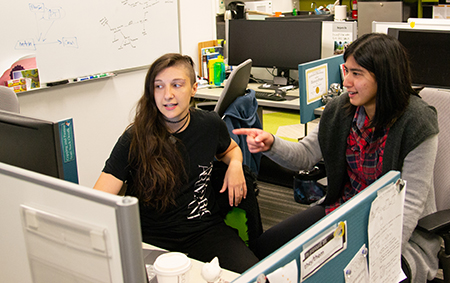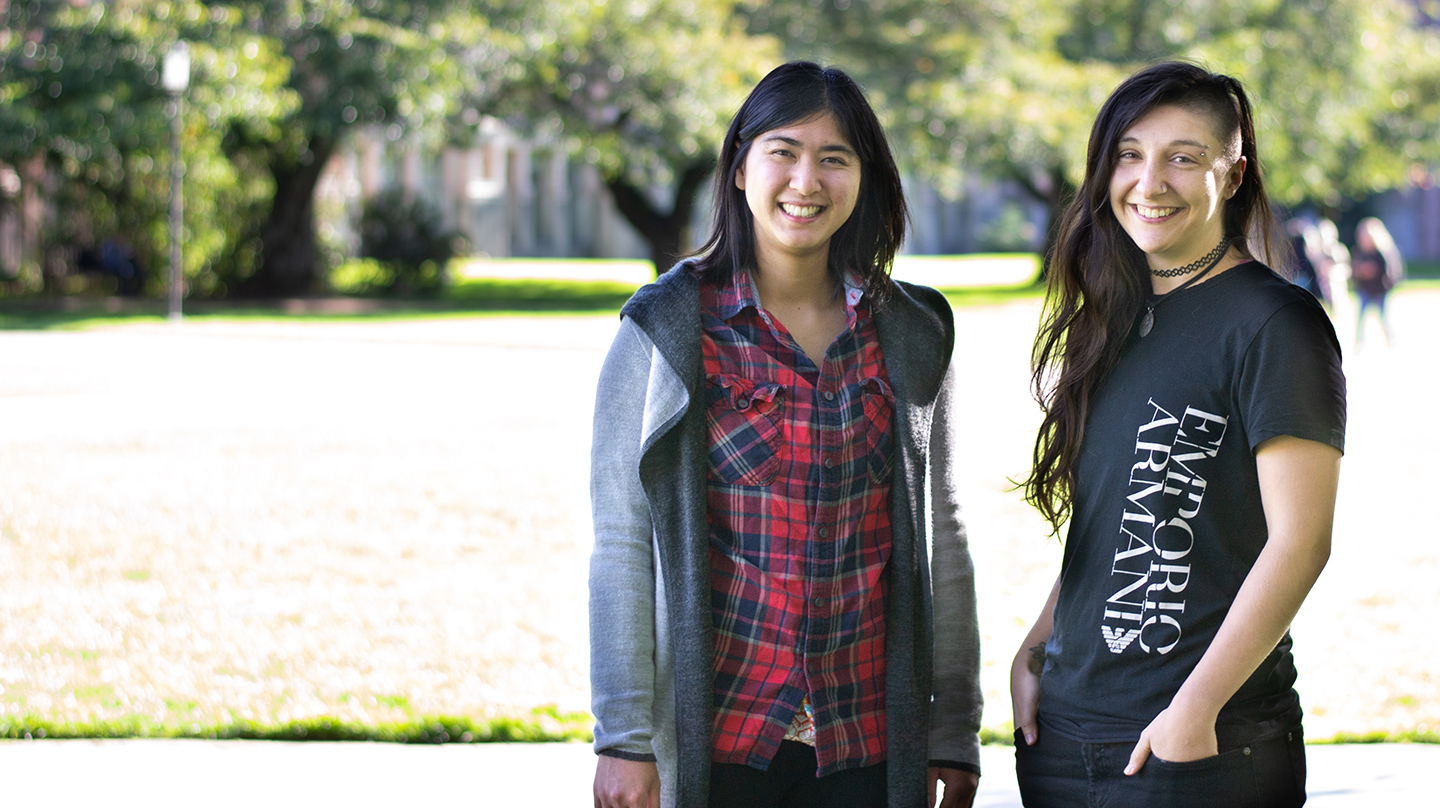Technology studies in college can be a turnoff for many. Women and people of color have long been underrepresented in the IT workplace, and it’s easy to see why. They may encounter computer science courses dominated by condescending white men; classrooms that are competitive instead of collaborative; large, packed, impersonal lecture halls; and dense, discouraging instruction.
They stay away. Or walk away, which Mina Tari (pictured above at left) almost did her freshman year at the University of Washington as she waded through STEM and computer science courses.
“I did not find any of them very welcoming spaces in terms of learning. There were almost 1,000 people in a class and very little face-to-face time with teaching assistants, instructors and peers. It was very isolating,” says Tari, who is now examining the tech turn-off problem as a Ph.D. student at the iSchool.
She is one of two iSchool doctoral students to be awarded a prestigious National Science Foundation Graduate Research Fellowship this year. The other is Yim Register, who brings a spirit of playfulness and keep-it-real relevance to technology education.
“I believe in a compassionate bridge between technology and people,” says Register (pictured at right).
Both doctoral students are drawing on feminist theory to make computing education more welcoming, more accessible, and more appealing to all, especially those who’ve traditionally felt or been excluded.
"Yim and Mina start from equity in everything they do, whether it’s research, teaching, or service to their academic community.”
“Yim and Mina start from equity in everything they do, whether it’s research, teaching, or service to their academic community,” says Amy Ko, director of the iSchool’s Code & Cognition Lab. Ko is Register’s adviser and a committee member for Tari, who is advised by iSchool Associate Professor Hala Annabi in her ACCESS-IT research group.
“I’m incredibly proud of their devotion to weaving inclusion into their ideas, and so excited that the NSF recognized their potential as scholars,” says Ko.

Tari, who found her academic footing after switching to a double major of Informatics and Gender, Women & Sexuality Studies, has conducted in-depth focus groups and interviews with undergraduate women of color to see what could make tech coursework more attractive. A major finding is that women of color, who receive less than 5 percent of computer science undergraduate degrees, seek a more collaborative tech environment where they can support each other.
Study participants also cited sympathetic undergraduate teaching assistants as a positive influence. Tari is running an exploratory study on TAs, examining strategies they use, or could use, to make technology classes more inclusive.
“TAs seem more relatable to students because they are so similar in age and in classroom experience,” Tari says. “TAs can just talk to students very clearly about what’s going on.”
Register is a self-described “radical optimist” who earned a bachelor’s degree in Brain and Cognitive Science at the University of Rochester in New York and worked as an ESL kindergarten teacher in Thailand before joining the iSchool. Register, who identifies as nonbinary and uses they/them pronouns, has a talent for making big ideas digestible, such as creating a YouTube video that uses a pile of pancakes to explain data stacking. To reduce pressure in learning, they created a new curriculum this summer for beginning software engineering students that incorporated “a lot of jokes and silliness” into lessons on statistical data analysis.
Register’s main focus is on finding creative ways to develop literacy around machine learning — knowledge that can empower people to advocate for themselves in an increasingly AI world.
“Every day, we interact with some kind of machine learning, whether it’s text prediction, Google Maps or Facebook,” says the doctoral student. “There’s a great disparity between people who understand these things and those who don’t. Certainly race and class and gender issues are involved.”
Register and Tari are the only NSF Fellowship grantees in the iSchool this year. An estimated 1,500 fellowships are awarded nationally. The fellowship, which includes a $34,000 annual stipend and full tuition, allows the two doctoral students to freely explore their research ideas. They can go off on their own paths. They can make mistakes.
“It means you have the security for your own ideas,” says Register. “How awesome is that!”
